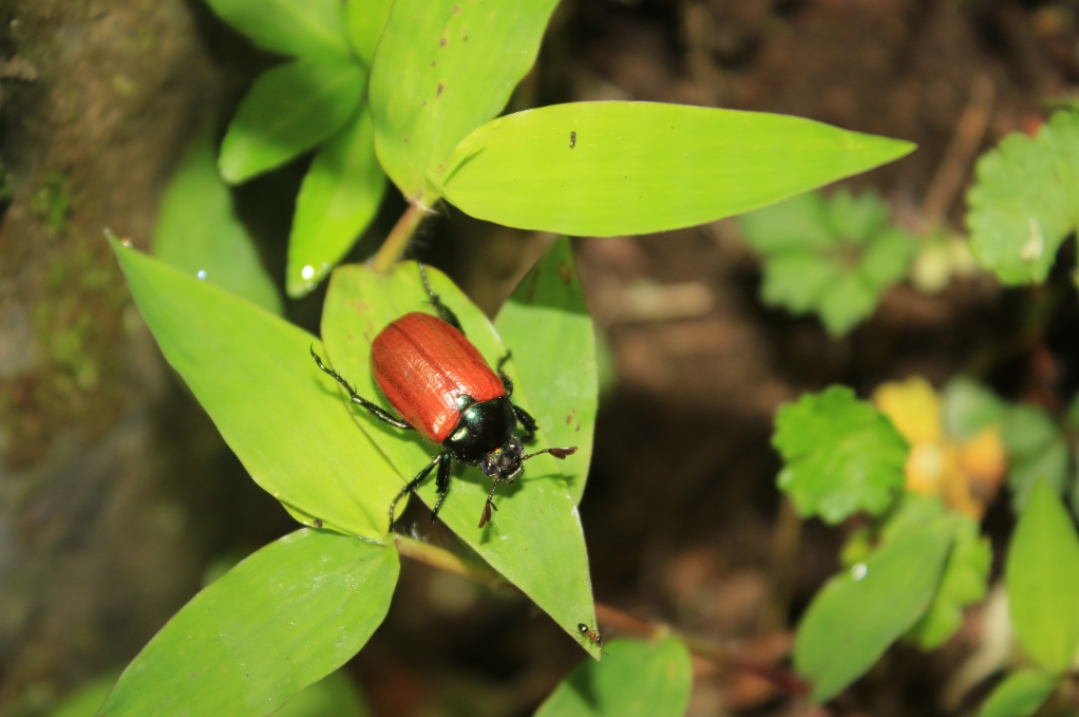The show must go on: Online Red List Assessor Training Workshop for experts in Republic of Korea
Together with the Ministry of Environment and the National Institute of Biological Resources of the Republic of Korea (ROK), IUCN has launched the IUCN-Republic of Korea Global Red List Partnership.

The Jeju beetle (Chejuanomala quelparta) is endemic to the Republic of Korea.
Photo: Heo Jiman (CC BY-NC-ND 2.0 KR)
Several hundred species endemic to the Republic of Korea will be assessed for The IUCN Red List of Threatened SpeciesTM through the IUCN-Republic of Korea Global Red List Partnership. This will involve Red List training and a series of assessment review workshops over the next three years.
“We are pleased to have this Global Red List Partnership with IUCN. Despite undergoing a global pandemic, we believe it is imperative that we continue to build our capacities so that we can carry out Red List assessments at the global standard,” said Dr. Byoung Yoon Lee, Director General of Biological Resources Research at the National Institute of Biological Resources.
The first Red List training conducted through the partnership took place online, from Monday 30 November to Friday 4 December 2020, taking into account the restrictions on international travel due to COVID-19. Red List assessor training workshops are traditionally conducted in person, however IUCN combined a video conference workshop with the Online Red List Training Course to ensure that the work could go ahead as planned.
“With so much urgent work to be done for species conservation, we can’t lose time. I am very encouraged that the show can go on,” said Dr Jane Smart, Global Director of the IUCN Biodiversity Conservation Group and Director of Global Species Programme. “It is excellent that despite Covid-19, we can start this project as planned utilising online platforms to make the training possible. I would like to thank our partners, the Ministry of Environment and the National Institute of Biological Resources of the Republic of Korea, for their support to find ways to make this happen.”
The course ran over five days, rather than the typical three for an in-person course. IUCN Red List Assessor Training is designed to enable species experts to apply the IUCN Red List Categories and Criteria to produce Red List assessments. An advantage of online workshops is that they can be recorded, and participants can replay the lessons.
“The experience of training online is valuable for future workshops. It shows that with preparation and willingness from trainers and trainees, we can make it work,” said David Allen, Regional Biodiversity Assessment Officer at IUCN.
The workshop has been a success for all, proving that collaboration, innovation and technology can overcome many of our challenges in nature conservation.



